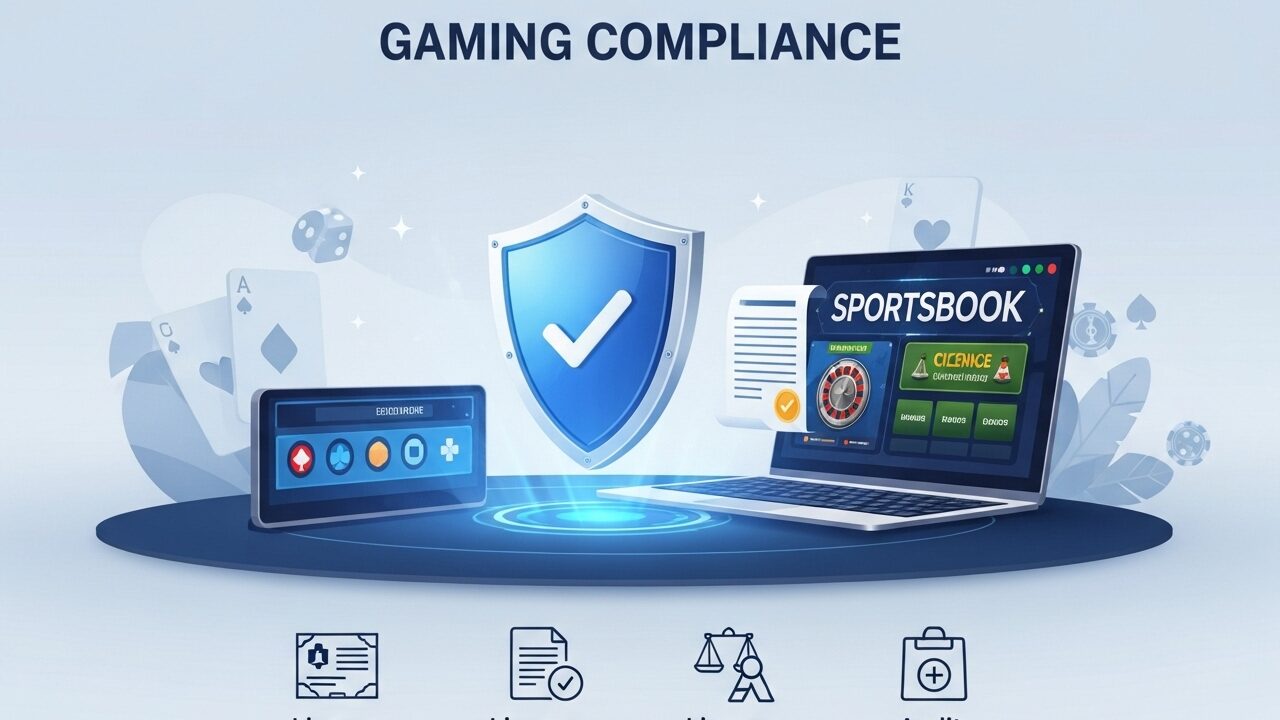
Compliance for Gaming: What Every Operator Needs to Know
What Is Gaming Compliance? Understanding the rules that keep your business legal and trustworthy.
Starting a gaming business—whether it’s an online casino, sportsbook, or fantasy sports platform—is exciting. But behind the thrill of launching your platform lies a critical step you cannot skip: compliance. Getting your legal house in order is not just a bureaucratic hoop to jump through—it’s the foundation for a trustworthy, successful business.
Let’s break down why compliance matters, what it entails, and how to navigate it without losing your mind.
What Is Gaming Compliance, Anyway?
Simply put, compliance means following the rules. In gaming, this isn’t just a suggestion—it’s the law. Compliance ensures your business operates legally, treats players fairly, and protects sensitive data.
These rules vary depending on:
-
Industry – Online casinos, sports betting, and lotteries all have different regulations.
-
Location – Each country (or even state) may have its own set of laws.
-
Services offered – From in-app purchases to crypto betting, what you offer can change your compliance requirements.
Why Compliance Matters
Think of compliance like a seatbelt: you might not always notice it, but it keeps you safe when things go wrong. In gaming, the benefits include:
1. Legal Protection
Without the right licenses and approvals, your business could face fines, lawsuits, or even forced shutdowns.
2. Player Trust
Gamers are savvy. They look for licensed platforms that guarantee fairness and secure payments. Compliance tells them: “We take your safety seriously.”
3. Business Growth
Being compliant opens doors to payment processors, advertising networks, and international markets. Non-compliance? That’s a roadblock.
Compliance in Action: Gaming Licenses
If you’re in online gaming, licensing is at the heart of compliance. Depending on your audience, you may need approval from authorities like:
-
Malta Gaming Authority (MGA)
-
UK Gambling Commission (UKGC)
-
State gaming boards in the USA
These licenses don’t just look good on your website—they ensure:
-
Fair gameplay through verified RNGs (random number generators)
-
Secure financial transactions
-
Responsible gaming practices
-
Transparent and accountable operations
Types of Licenses You Might Need
Every gaming business is unique, but common licenses include:
-
Business Operating License – Your basic “green light” to operate legally.
-
Industry-Specific License – Like a gaming, sportsbook, or lottery license.
-
Location-Based License – Some countries or states require additional approvals.
-
Online Services License – Necessary for apps, websites, and digital platforms.
Preparing for Compliance: What You’ll Need
Licensing requires preparation. Here’s a quick checklist:
-
Detailed business plan
-
Proof of identity for owners and executives
-
Financial statements
-
Background checks
-
Compliance policies and procedures
-
Technical documentation for your platform
For iGaming platforms specifically, you may also need:
-
RNG audits
-
Security certifications
-
Platform integrity checks
How to Make Compliance Manageable
Compliance can feel overwhelming—but it doesn’t have to. Here are a few tips:
-
Know your rules – Research your region or hire a local compliance specialist.
-
Prepare documentation early – Avoid delays by having everything ready.
-
Be transparent – Regulators appreciate honesty.
-
Track renewal dates – Most licenses need periodic updates.
-
Work with experts – Compliance consultants save you time, stress, and money.
Compliance Is More Than a Box to Tick
Being compliant isn’t just about avoiding trouble—it’s about building a sustainable business. Players, partners, and investors all trust licensed and regulated platforms more than unlicensed ones. Compliance shows you’re serious about fairness, security, and responsibility.
Final Thoughts
Launching a gaming business is thrilling—but the thrill won’t last if you ignore compliance. Take the time to understand regulations, prepare your documentation, and work with experts if needed. With the right approach, compliance becomes a tool that protects your business, builds player trust, and sets you up for long-term success.